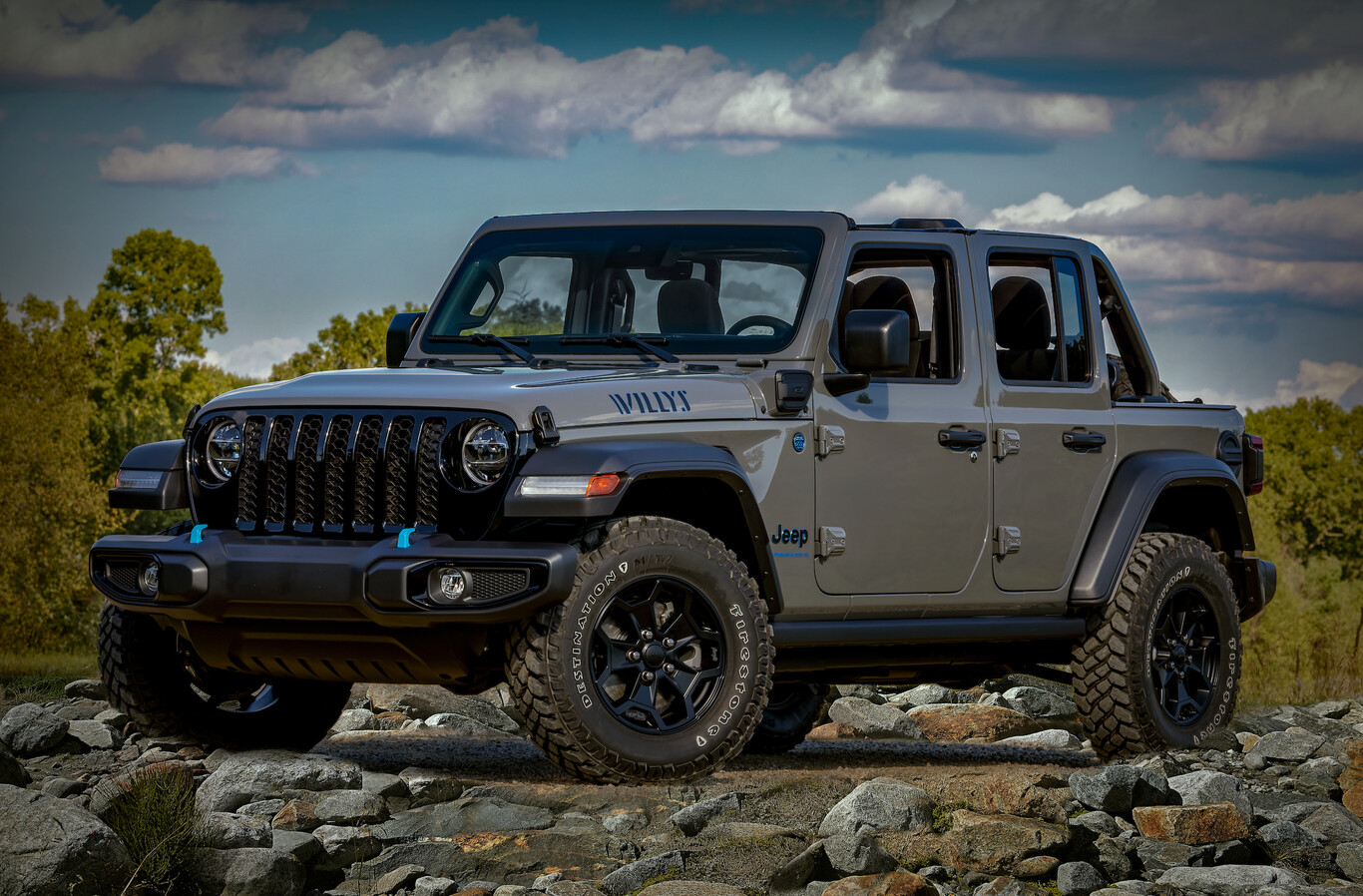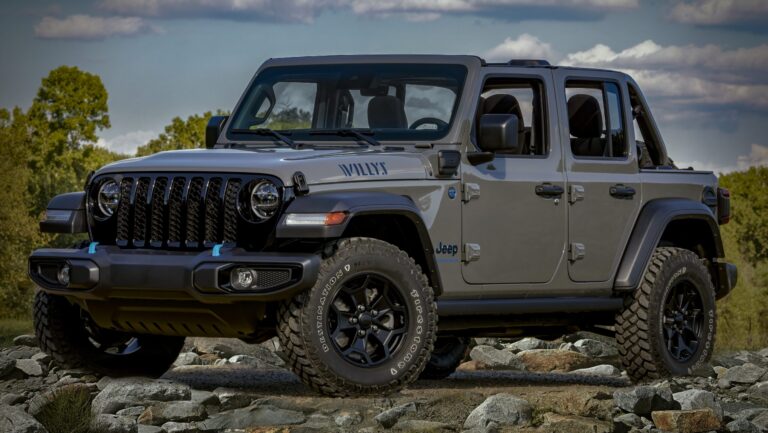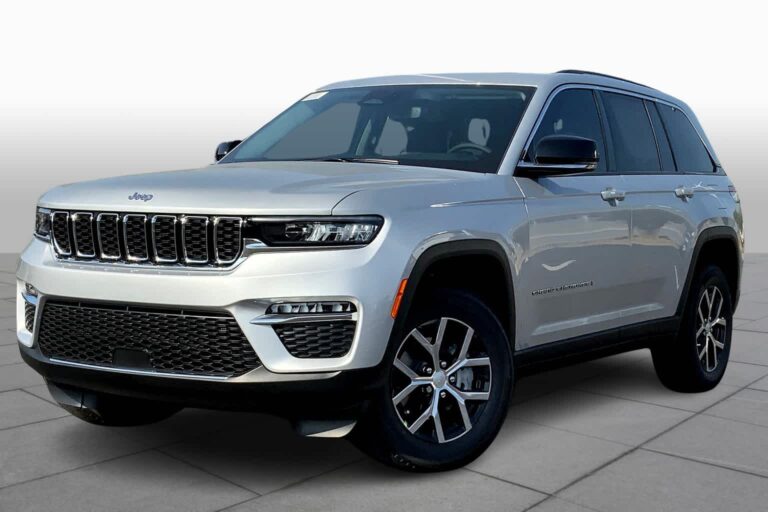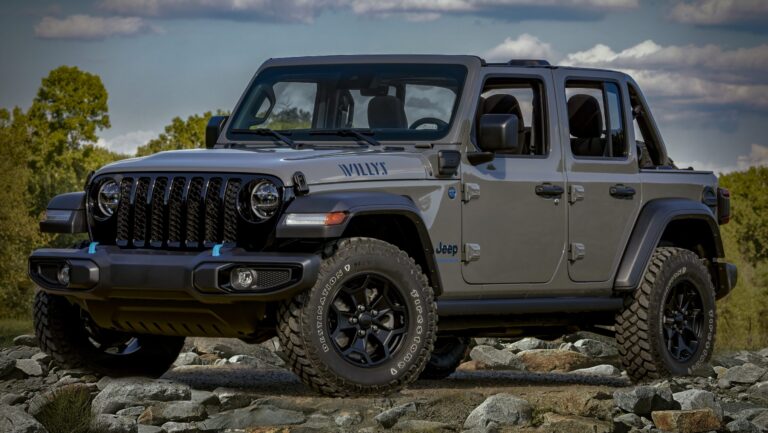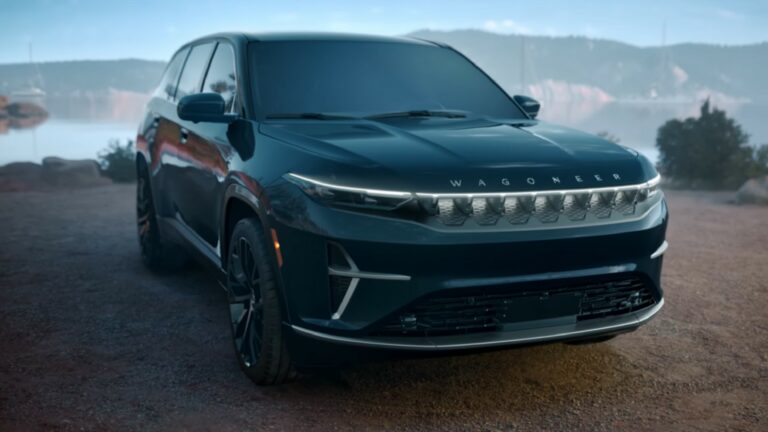Jeep 401 For Sale: Unearthing the Legendary V8 Powerhouse
Jeep 401 For Sale: Unearthing the Legendary V8 Powerhouse jeeps.truckstrend.com
For many automotive enthusiasts, the phrase "Jeep 401 for sale" evokes a specific and powerful image: not a particular model name like Wrangler or Cherokee, but rather the beating heart of some of the most robust and sought-after vintage Jeeps – the legendary AMC 401 cubic inch V8 engine. This engine, a true titan of its era, transformed ordinary utility vehicles into formidable off-road beasts and capable tow rigs, leaving an indelible mark on Jeep history.
If you’re seeing "Jeep 401 for sale," you’re likely looking at a classic Jeep from the 1970s – typically a J-series pickup truck (J10, J20), a Grand Wagoneer, or a full-size Cherokee (SJ body style) – that was factory-equipped with, or has been retrofitted with, this potent powerplant. These vehicles represent a unique blend of rugged utility, classic styling, and raw American muscle, making them highly desirable among collectors, off-roaders, and anyone who appreciates the engineering of a bygone era. This comprehensive guide will delve into everything you need to know about finding, evaluating, and acquiring one of these iconic machines.
Jeep 401 For Sale: Unearthing the Legendary V8 Powerhouse
Why the AMC 401 V8 is Coveted
The AMC 401 V8, produced from 1971 to 1978, stands out for several compelling reasons:
- Raw Power: With a factory rating of around 225 horsepower and a substantial 320 lb-ft of torque in its early iterations (figures varied slightly with emission controls), the 401 offered significant grunt for its time. This power translated directly into superior towing capability, impressive acceleration for a truck, and excellent performance in challenging off-road conditions.
- Robust Design: Built with a strong cast-iron block and large main bearings, the 401 was designed for durability. It shared much of its architecture with its smaller siblings (304, 360, 390 V8s), but its larger bore and stroke gave it the displacement advantage.
- Rarity: Compared to the more common AMC 304 and 360 V8s, the 401 was produced in much smaller numbers, especially within the Jeep lineup. It was typically an optional engine in the higher trim levels or heavier-duty models, making factory-equipped "Jeep 401s" a true collector’s item.
- Muscle Car Heritage: Beyond Jeeps, the AMC 401 also powered high-performance cars like the AMX and Javelin, lending it a muscle car mystique that further enhances its appeal.

For enthusiasts, owning a Jeep with an AMC 401 isn’t just about owning a vehicle; it’s about owning a piece of American automotive history, a testament to a time when brute force and mechanical simplicity reigned supreme.
Which Jeeps Came with the 401?
While any Jeep could theoretically have a 401 swapped into it, the factory-equipped "Jeep 401s" are primarily found in the following models from the 1970s:
- Jeep J-Series Pickups (J10, J20): These full-size trucks, known for their ruggedness and utility, often benefited most from the 401’s power, especially the heavier J20 models used for towing or heavy hauling.
- Jeep Wagoneer (SJ): The luxurious and iconic Wagoneer, particularly the later full-size models, could be optioned with the 401, providing a powerful and smooth ride for a family SUV.
- Jeep Cherokee (SJ): The two-door and four-door full-size Cherokee, essentially a sportier version of the Wagoneer, also offered the 401, turning it into a very capable and surprisingly quick off-roader.
![]()
Identifying a true factory 401 can involve checking the VIN (Vehicle Identification Number) or the engine block casting numbers, as many 360s were later swapped for 401s, or vice versa. Always verify the authenticity if that’s a key factor for your purchase.
Key Considerations When Buying a "Jeep 401 For Sale"
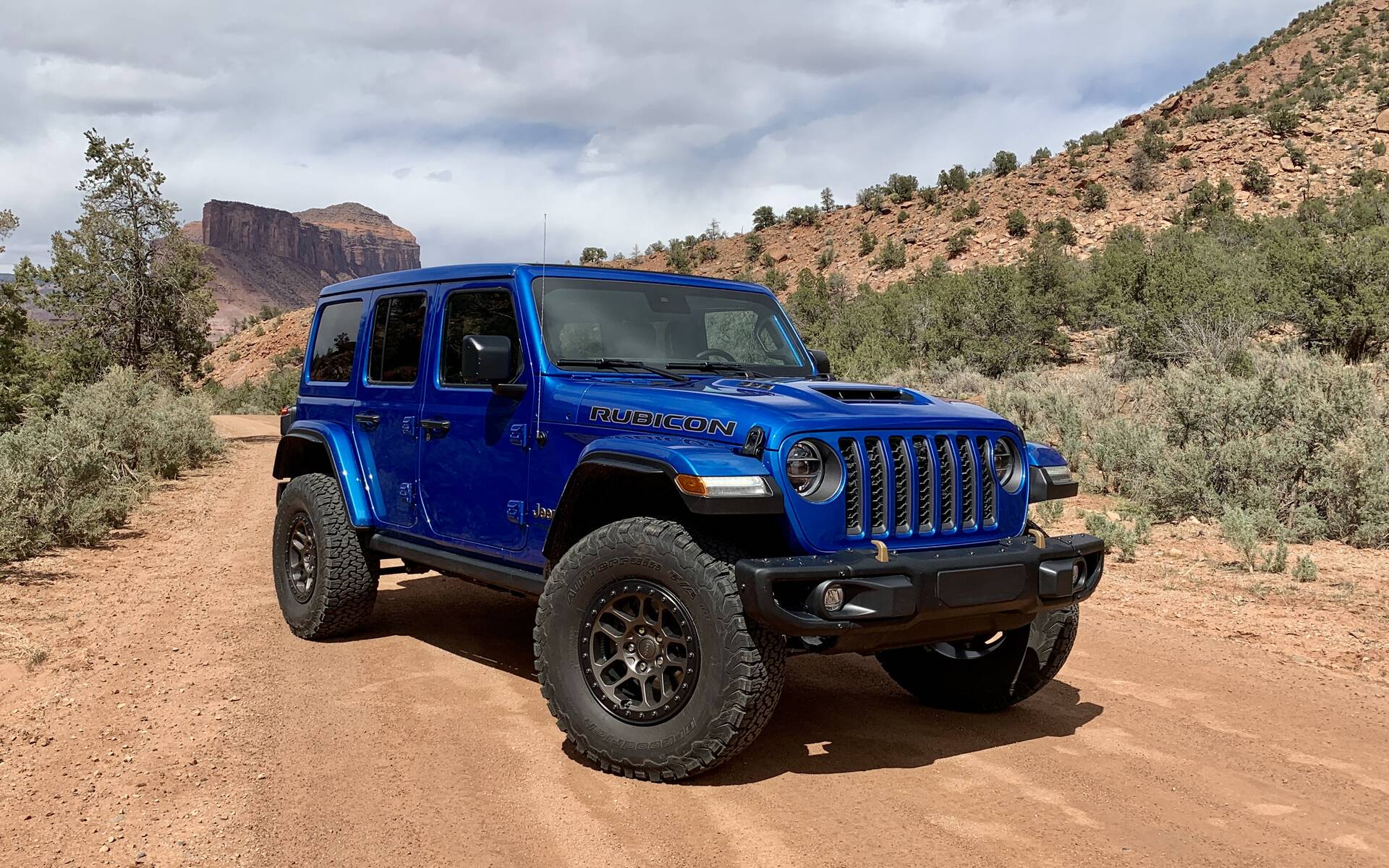
Acquiring a vintage Jeep with an AMC 401 requires careful consideration. These are not modern, plug-and-play vehicles.
-
Engine Authenticity and Condition:
- Verification: Ensure it’s a genuine 401. Look for the "401" casting number on the side of the block. A professional mechanic familiar with AMC engines can help.
- Running Condition: Does it start easily? Are there any strange noises (knocking, ticking)? Does it smoke? Check for oil leaks around the valve covers, oil pan, and rear main seal.
- Carburetor/Fuel System: Many will have aftermarket carburetors or require tuning. Check for fuel leaks and general fuel system integrity.
- Ignition System: Is it still points and condenser, or has it been converted to electronic ignition (a common and recommended upgrade)?
- Cooling System: Inspect the radiator, hoses, and water pump for leaks or signs of neglect. The 401 can run hot if the cooling system isn’t up to par.
-
Overall Vehicle Condition:
- Rust: This is the primary enemy of vintage Jeeps. Inspect the frame rails, floorboards, rocker panels, wheel wells, and tailgate for rust. Pay close attention to areas where dirt and moisture collect.
- Drivetrain:
- Transmission: Most 401s were paired with a robust automatic (like the GM TH400) or a heavy-duty manual (like the Borg-Warner T-18). Check for smooth shifting, fluid leaks, and proper engagement of all gears.
- Transfer Case: Typically a Dana 20 or an NP208/229. Ensure 4WD engages smoothly in both high and low range.
- Axles: Dana 44s were common, with Dana 60s in some J20s. Check for leaks, excessive play in U-joints, and differential noise.
- Suspension: Inspect leaf springs, shackles, shocks, and steering components for wear, damage, or excessive play.
- Brakes: These vehicles often had drum brakes or early disc brakes. Test their effectiveness and look for leaks.
- Interior: While less critical for functionality, interior condition affects value and comfort. Look for cracked dashboards, torn seats, and non-functional gauges.
- Electrical System: Test all lights, wipers, gauges, and accessories. Old wiring can be a headache.
-
Modifications: Many "Jeep 401s" will have been modified over the decades.
- Lifts and Tires: Assess the quality of the lift kit and tire condition. Large tires can put strain on the drivetrain.
- Engine Upgrades: Headers, aftermarket intakes, or cam swaps can be good but ensure they were done correctly.
- Originality vs. Customization: Decide if you prefer a stock vehicle or one that’s already customized for your needs.
-
Paperwork: Ensure the title is clear, matches the VIN, and there are no liens. Any service records are a huge bonus.
Where to Find a "Jeep 401 For Sale"
Finding these specific vehicles requires patience and knowing where to look:
- Online Marketplaces:
- eBay Motors: Often features a wide range of classic vehicles, including rare Jeeps.
- Facebook Marketplace/Groups: Numerous classic Jeep and Wagoneer/J-truck specific groups are excellent resources.
- Craigslist: Local listings can sometimes yield hidden gems.
- Bring a Trailer (BaT): A premium auction site for classic vehicles; often features well-documented, high-quality examples.
- Specialized Forums & Enthusiast Sites:
- IFSJA.org (International Full Size Jeep Association): The definitive resource for SJ Jeeps, with a vibrant classifieds section.
- Classic Car Dealerships & Auctions: Dealers specializing in vintage 4x4s or classic American vehicles may have them.
- Word of Mouth: Sometimes the best deals come from friends of friends or local garage sales.
The Buying Process: Tips for Success
- Set a Realistic Budget: Not just for the purchase price, but for potential repairs, maintenance, and registration.
- Research Thoroughly: Understand the common issues for the specific year and model you’re looking at.
- Inspect in Person: Pictures rarely tell the whole story. If possible, inspect the vehicle yourself or have a trusted friend do it.
- Get a Pre-Purchase Inspection (PPI): If you’re serious about a vehicle, especially one that requires travel, invest in a PPI by a mechanic specializing in vintage 4x4s or American V8s.
- Negotiate: Always be prepared to negotiate the price. Be polite but firm.
- Arrange Transportation: Plan how you’ll get the vehicle home, especially if it’s not a reliable runner.
Restoration vs. Driver Quality
When looking at a "Jeep 401 for sale," you’ll encounter vehicles in various states:
- Project Vehicles: These are often the most affordable but require significant time, money, and skill to bring back to life. Expect extensive rust repair, mechanical overhauls, and interior work.
- Driver Quality: These are functional vehicles that can be driven as-is, but may have cosmetic flaws, minor mechanical issues, or deferred maintenance. They offer a good balance for those who want to enjoy the vehicle without a full restoration.
- Restored/Show Quality: These command the highest prices. They have been meticulously restored to original condition or tastefully modified. They require less immediate work but come at a premium.
Your budget, mechanical aptitude, and desired use for the Jeep will dictate which category is right for you.
Potential Challenges & Solutions
Owning a vintage "Jeep 401" isn’t without its quirks:
- Parts Availability: While many parts for the J-series, Wagoneers, and Cherokees are available (especially for the drivetrain and common wear items), specific AMC 401 engine parts can be harder to find than for more common engines.
- Solution: Utilize specialized online retailers, forums (like IFSJA), and reproduction parts manufacturers. Be prepared to search or wait for rare components.
- Fuel Economy: Expect single-digit miles per gallon. The 401 is powerful, but it’s not efficient by modern standards.
- Solution: Embrace it, or consider an aftermarket EFI conversion for slight improvement and better cold starts.
- Maintenance: These vehicles require more regular attention than a modern car. Gaskets, hoses, and fluids need frequent checks.
- Solution: Learn basic mechanics, invest in a good service manual, and find a trustworthy mechanic who understands vintage vehicles.
- Emissions: Depending on your state, older vehicles may be exempt from modern emissions testing, but always check local regulations.
Price Guide: Jeep 401 For Sale (Estimated Ranges)
Please note that these are very broad estimates. Prices can vary wildly based on condition, originality, location, and specific modifications. Vehicles with documented history or rare options will command higher prices.
| Model | Condition: Project/Parts | Condition: Driver Quality | Condition: Restored/Show |
|---|---|---|---|
| Jeep J10/J20 Pickup (401-equipped) | $3,000 – $8,000 | $9,000 – $25,000 | $28,000 – $60,000+ |
| Jeep Wagoneer (SJ, 401-equipped) | $4,000 – $10,000 | $12,000 – $35,000 | $40,000 – $80,000+ |
| Jeep Cherokee (SJ, 401-equipped) | $3,500 – $9,000 | $10,000 – $30,000 | $35,000 – $70,000+ |
- Note: A "401-equipped" vehicle implies it either came from the factory with the 401 or has a professional, desirable 401 swap. Vehicles with poorly executed engine swaps will typically fall into the lower end of the "Project" category.
Frequently Asked Questions (FAQ) about "Jeep 401 For Sale"
Q: What exactly does "Jeep 401" mean?
A: It refers to a Jeep vehicle, typically from the 1970s, that is equipped with the AMC 401 cubic inch V8 engine. It’s not a specific Jeep model name itself.
Q: How can I tell if a Jeep truly has an AMC 401 engine?
A: Look for the "401" casting number on the side of the engine block, usually below the cylinder head on the passenger side. You can also cross-reference the VIN with factory build sheets if available, though engine swaps are common.
Q: Are parts for the AMC 401 hard to find?
A: Some specific internal engine parts can be harder to source than for more common engines, but many external components (carburetors, ignition parts, common gaskets) are available through aftermarket suppliers or AMC-specific parts vendors.
Q: Is a "Jeep 401" good for daily driving?
A: While possible, they are generally not ideal daily drivers due to poor fuel economy, lack of modern safety features, and the need for more frequent maintenance. They are better suited as weekend cruisers, project vehicles, or dedicated off-road rigs.
Q: What’s the typical fuel economy for a "Jeep 401"?
A: Expect single-digit MPG, typically in the range of 8-12 MPG depending on the vehicle, gearing, and driving conditions.
Q: Can I put modern fuel injection on an AMC 401?
A: Yes, aftermarket EFI systems are available for the AMC V8s, which can improve cold starting, drivability, and potentially slightly better fuel economy, though they are a significant investment.
Q: Are these Jeeps good for off-roading?
A: Absolutely! The AMC 401 provides excellent low-end torque, making these Jeeps very capable off-road machines, especially the J-series trucks and Cherokees.
Conclusion
The allure of a "Jeep 401 for sale" is undeniable. These powerful, classic vehicles represent a golden era of American engineering, combining rugged utility with genuine V8 muscle. Whether you’re a seasoned collector, an off-road enthusiast, or simply someone captivated by the charm of vintage 4x4s, a Jeep equipped with the AMC 401 offers a unique and rewarding ownership experience.
However, entering this market requires a discerning eye and a clear understanding of the commitment involved. Thorough research, careful inspection, and a realistic budget are paramount to finding the right "Jeep 401" that will provide years of enjoyment and a connection to a truly legendary piece of automotive history. With the right approach, you can indeed unearth and unleash the roaring power of this iconic V8 in your very own classic Jeep.
